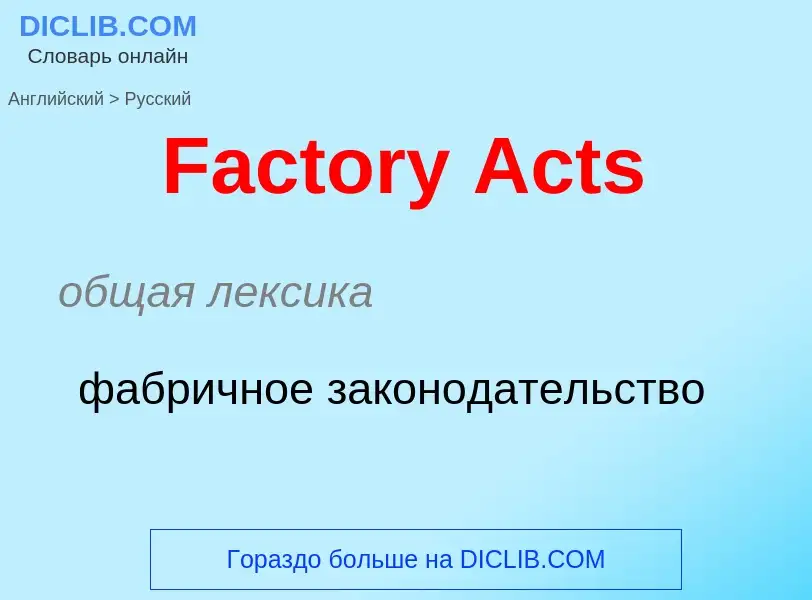Translation and analysis of words by ChatGPT artificial intelligence
On this page you can get a detailed analysis of a word or phrase, produced by the best artificial intelligence technology to date:
- how the word is used
- frequency of use
- it is used more often in oral or written speech
- word translation options
- usage examples (several phrases with translation)
- etymology
Factory Acts - translation to russian
общая лексика
фабричное законодательство
Definition
Wikipedia

The Factory Acts were a series of acts passed by the Parliament of the United Kingdom beginning in 1802 to regulate and improve the conditions of industrial employment.
The early Acts concentrated on regulating the hours of work and moral welfare of young children employed in cotton mills but were effectively unenforced until the Act of 1833 established a professional Factory Inspectorate. The regulation of working hours was then extended to women by an Act of 1844. The Factories Act 1847 (known as the Ten Hour Act), together with Acts in 1850 and 1853 remedying defects in the 1847 Act, met a long-standing (and by 1847 well-organised) demand by the millworkers for a ten-hour day. The Factory Acts also included regulations for ventilation, hygienic practices, and machinery guarding in an effort to improve the working circumstances for mill children.
Introduction of the ten-hour day proved to have none of the dire consequences predicted by its opponents, and its apparent success effectively ended theoretical objections to the principle of factory legislation; from the 1860s onwards more industries were brought within the Factory Act.



